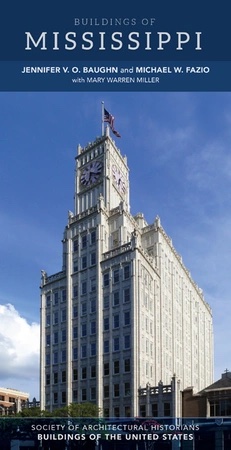
Befitting Vicksburg’s status in the late nineteenth century as Mississippi’s largest city, its massive post office and federal building is one of the state’s principal examples of Romanesque Revival. In 1888, Freret hired Goenner, a German immigrant who had just moved to Washington, D.C., from New York City, to design Vicksburg’s post office. Finished in red pressed brick, the building has an irregular form, round-arched openings, elaborate terra-cotta decoration, and a complex roofline and tower enriched by brackets. Through such federal buildings, the latest architectural styles were introduced to small-town America, along with unfamiliar building materials and technology—in this case an early use of “brownstone” or unglazed terra-cotta in the tower base and gable ends. The post office added a Romanesque-styled south wing in 1914. Two years after the Great Mississippi Flood of 1927 devastated the Delta region, the Mississippi River Commission, established by the U.S. Congress in 1879, moved its headquarters from St. Louis to this building. A new post office and courthouse was completed in 1937 by C. H. Lindsley at 820 Crawford Street.






